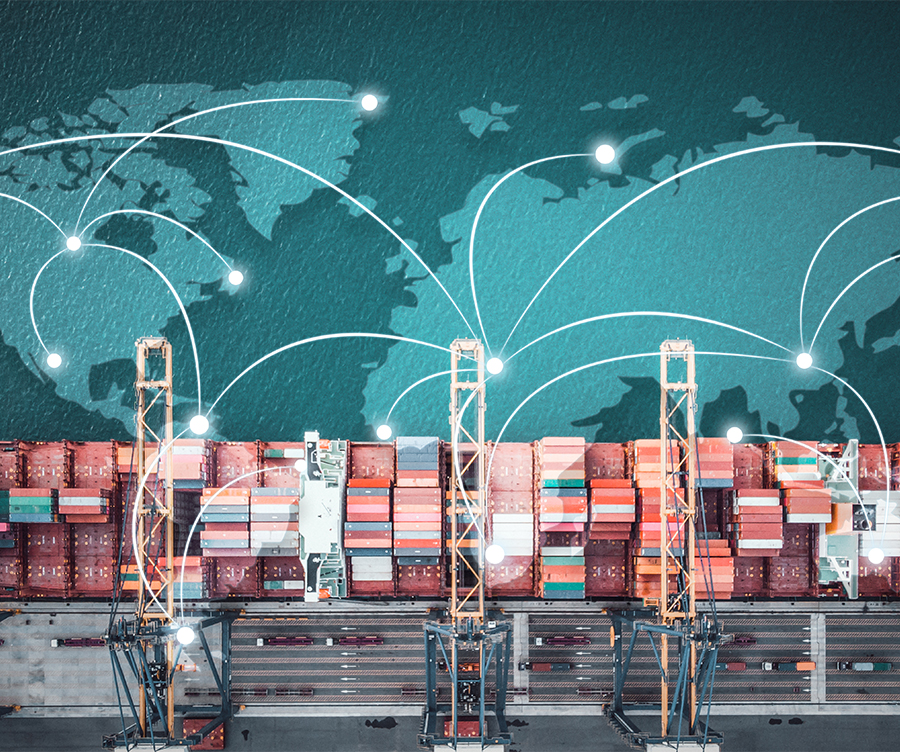An international consortium says it has executed the first fully digitised shipment of goods following the enactment of UK legislation giving legal recognition to paperless trade documents.
A consignment of valves were shipped from the UK to Singapore using the blockchain platform of supply chain solutions provider LogChain shortly after the UK’s Electronic Trade Documents Act (ETDA) entered force on September 20.
An electronic air waybill was used to ship the goods by Singapore Airlines and LogChain says it is the first to use a full suite of digital logistics documents such as the purchase order, driver and vehicle checklists, gate in and out receipts, packing lists, security declarations and product paperwork.
“Placing a bill of lading on the blockchain is a commendable feat, but if the hands-on – on-ground and on-site – staff at the heart of our operations are still tethered to manual methods like clipboards, then the essence of a fully digitalised supply chain eludes us,” says Andrew McKeown, LogChain’s CEO.
“We sought to highlight the logistical element, demonstrating the potential for comprehensive digitalisation across the entire spectrum of the supply chain, transcending mere transactional boundaries,” he tells GTR.
While the focus of global reforms to digitise trade paperwork has been on documents of title such as the bill of lading, McKeown says this shipment seeks to achieve the “broader intent of ensuring end-to-end digitalisation in line with the ‘spirit of the agreement’ of the ETDA”.
“To cite an example, warehouse receipts and ship’s delivery orders, while not traditionally recognised as documents of title under common law, have an operational significance attached to their possession. In practice, holding these documents might sometimes be a prerequisite for a party to assert performance of a duty, or to activate certain statutory effects, as seen under statutes like the Sale of Goods Act 1979,” he says.
The shipment was sent from Burnley in the UK by Fort Vale, a valves and fittings manufacturer, to its own facility in Singapore, meaning no buyer or seller was involved.
“A significant number of our key accounts are based in Singapore and as such, the opportunity to be part of this historic moment was something not to miss,” says Graham Blanchard, Fort Vale’s global sales and marketing director.
“Fort Vale sees the benefits of security, efficiency, cost savings and reduced risk of delays as real positives not only for our organisation but as a contribution to frictionless trade between the UK and Singapore as a whole.”
The shipment also included NG Transport, the Woodland Group, BT Rune and EES Freight Services. No financial institution was involved.
Several companies have already performed digital trade transactions, particularly as more countries adopt or reach near adoption of legal reforms to recognise digital versions of key trade documents such as bills of ladings.
Earlier this year Swedish trade tech firm Enigio said it had executed a fully digital trade between Belgium and India, and last month completed what it said was the first digital trade transaction under the ETDA, with Lloyds Bank. Several pilot projects have also been conducted involving parties in Singapore, where equivalent legislation has been in place since early 2021.
“This is the first fully digitalised movement of goods under the UK’s new ETDA, which will transform and simplify the process of exporting from the UK to the world,” says Martin Kent, the UK trade commissioner for Asia Pacific.
“We are already working to expand this pilot across Southeast Asia and we will work with all partners to realise the benefits of paperless trade, which is great for both business efficiency and the environment.”
Kara Owen, the UK high commissioner to Singapore, says the shipment was also enabled by the UK-Singapore Digital Economy Agreement signed in 2022.
A separate consortium collaborated earlier this year on a pilot to test the safety of digital trade documents, namely an electronic bill of lading and promissory note, from hackers using encryption technology provided by Arqit.
Trade between the UK and Singapore is likely to continue to be a test bed for digital documents due to both countries’ status as trade finance hubs and important legal centres for trade contracts and disputes.







